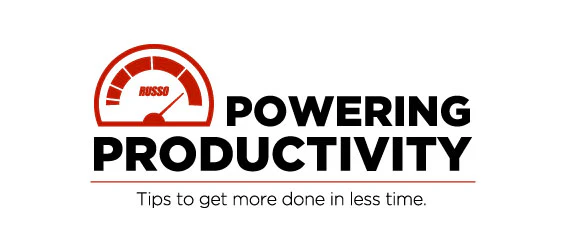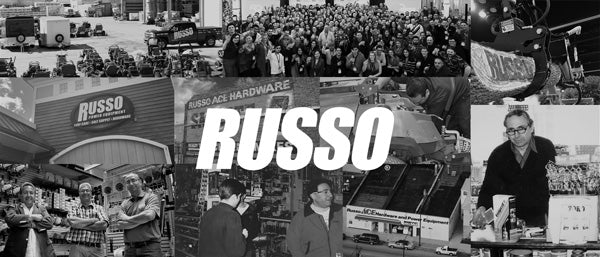
Safer Ways to Dominate Your Workday
Safety in the landscaping industry should be of the utmost importance no matter what time of year it is. But June is national safety month, so it's the perfect time to take another look at some of your current safety protocols. Ask yourself a few questions:
- What are some areas that are lacking in terms of your workers’ safety on the job?
- Are there any new or updated safety techniques that could improve the protection of your crew?
- What are some things you can do to make your overall company more responsible with regard to everyone's well-being?
If you really think about it, there are so many different things that can cause illness or injury in the landscaping profession including chemicals, noise, equipment, weather, and more, but almost all minor & major damage can be prevented by being precautious and not ignoring basic safety protocols. Industry standards can be overlooked, but ignoring them can cost you your job or your business as a whole.
Thankfully, OSHA provides regulations, guidelines, and requirements that landscapers are expected to follow to make sure that working conditions are safe so workers don’t get injured on the job, and although their list is extensive, it is for your own benefit. Below, we will highlight a handful of common physical risks, health risks, and company risks, as well as some precautions you can take, that can create a positive impact on your business as you continue to power through the heat of the summer.
Physical Safety Risks & Precautions
- Every day, you can be at risk of back injuries, amputations, hearing loss, and more. PPE is made to protect against these things, so wearing gear such as gloves, glasses, helmets, and other pieces properly will limit your exposure to dangerous situations. Ensuring a correct fit is essential, though, because if your clothing is too baggy or your gear isn’t secure, it can catch onto things or impede your vision which will ultimately reverse the purpose of this equipment.
- Loud noises are also dangerous and can kill the nerve endings in your ear, leading to partial or permanent hearing loss. For this reason, OSHA requires a hearing conservation program to be implemented for companies when noise can be at or above 85 decibels during an average 8-hour workday. At the same time, you can help prevent hearing loss by using quieter machines such as battery-powered equipment, limiting exposure or working in shifts, or using earplugs, earmuffs, and other protective equipment to cover your ears from the harsh sounds of the job.
- The equipment your employees typically work with can be dangerous even when operated correctly, but some equipment comes with a built-in safety feature or button. This can automatically shut down the machine in the event of an emergency, so it's a feature that should be used if it's available and will come in handy if you lose control or can’t turn off the machine for one reason or another.
- Doing something as simple as not leaving your equipment running might sound like common sense, but it is an extremely simple resolution to prevent any mishaps from occurring unexpectedly, and it will even save you money since it’s not wasting gas!
- Making sure you maintain & test your machinery is typically a common practice for most companies, and although it might be done to make sure a piece of equipment is functional for a day of work, this can also prevent unwanted snags, miscuts, and misfortunes as a whole.
- Finally, one of the simplest yet most overlooked rules on the job is to be constantly aware of your surroundings. If you’re working near a busy street, you should wear bright, reflective vests as well as utilize various signs to warn traffic of your presence. Even in areas that aren’t extremely busy, make sure you are able to look around, stay vigilant of where other employees are, and be sure to communicate. Something as simple as a misstep or a stumble over your surroundings can lead to major problems, so staying aware is key to safety!
Health Safety Risks & Precautions
- If you work with gas-powered equipment, fumes should be looked at as enemy #1, even more so than dangerous blades or heavy machinery, in most cases. Over the last few years, industry-leading brands have created the latest innovations in battery-powered tools and cleaner fuels. Companies have developed commercial-grade battery-powered products that can easily go toe to toe with most gas counterparts, so you can finally take a deep breath, literally! However, f it's too expensive to purchase an entirely new fleet, look into an alkylate fuel like Aspen! Aspen is ethanol free and burns much cleaner than most other fuels and pre-mixes on the market, neutralizing fumes to almost zero. If these solutions don’t work for you, though, maybe you can try to use self-powered hand tools whenever possible to minimize your contact.
- Pesticides can be extremely dangerous, causing illness or other nonfatal injuries that can be chronic & permanent, but most companies are good at specifying proper use and ways to protect yourself. Some of these things include wearing masks, eye protection, gloves, and more. Even if you’re covered head to toe in PPE, though, make sure you monitor yourself and others to see if any harmful symptoms are present.
- Working in the heat all day every day can lead to issues like heat illnesses including heat stroke, heat exhaustion, heat cramps, and heat rash, amongst others. Companies can implement modified schedules to handle the more labor-intensive tasks in the morning, evening, or whenever it’s not the hottest part of the day. If this isn’t possible, then try and utilize a rotating schedule, split shifts, or hire extra employees to help alleviate the total amount of work done per person. No matter what, always keep an eye on one another, and if you start to see a coworker who looks like they're struggling, make sure to get help immediately.
- This leads us to dehydration, which just so happens to be prevented as easily as it can be caused. You can create a company-wide message similar to “Rehydrate. Rest. Recover.” which serves as a reminder to get water, take a breather, and find some shade for a few moments. Water breaks are essential, and even just a minute or two pause to get some fluids can be the difference between a medical emergency and a productive workday. Encourage everyone to bring water bottles and fill them up as often as possible, even if they’re not empty, and offer cooling solutions like fans, misters, cooling packs, damp cloths, and more. This is actually a great time to promote your brand too, because you can include your company's logo on these products, double-dipping in perks for your business!
- Last but not least, one thing that isn’t spoken enough about in the landscaping business is mental health. National Safety Month is the perfect time to reconsider this as a priority, so make sure you know when you’ve reached your limit and give yourself a break. Something as simple as taking some time away from work to spend with family and friends or enjoying a hobby is a game-changer! Ultimately, you want to work hard, but you need to know your parameters so you don’t overextend yourself too far.
Company Safety Risks & Precautions
- Lastly, safety equipment typically adds another layer of clothing, making you warmer than you would be without it, but simply checking to see what the weather is going to be like planning ahead goes a long way. Plenty of PPE is now made to be more breathable, so if you know you have to wear it, you can plan the rest of your uniform around this gear. It can also be expensive, but PPE is one area of the business that you shouldn’t skimp on just because of price. Getting the safest gear for yourself and your employees will always be important, and typically, the higher quality the gear is, the less often it needs to be fixed or replaced.
- Safety equipment can also make the job more difficult, according to some landscapers. The fact of the matter is, this is almost always the case when it is used incorrectly. If you have an issue with keeping helmets, gloves, glasses, clothing, or other garments on correctly and securely, then there may be a different size or setting adjustment that can be used in order to provide a better fit.
- One of the most common issues, though, is the fact that so many crews don’t follow the rules. This either happens intentionally, because they are unaware of these procedures in the first place, they feel that it is a waste of time, or because the equipment is expensive. An easy way to change this comes when the company invests in the PPE for employees to wear so they’re not expected to have to purchase it on their own. Breaks can also be implemented to make sure that even on the busiest days, there are regularly scheduled pauses to get out of the sun, take safety gear off, sit down, and cool off.
As you work day-in and day-out, some repetitive tasks can cause complacency which can result in laziness or workers not realizing what they are actually doing in the moment. No one heads into work one day expecting to get injured, it’s just something that happens, but after taking the proper measures, you can help make these incidents take place less often and hopefully make them less severe. Safety has become something that is overlooked way more than it should be in the landscaping industry, but it is more important than ever to review your company’s safety protocols and ensure that they’re up to par with the rest of the industry, where they should be. Getting PPE on, maintaining & testing equipment, and taking a moment to recollect proper ways to work might take a little longer than normal, but it can seriously be the difference between a life-altering event and a normal day of work. Safety procedures are a very easy thing to implement and can save you from a life-changing illness or injury, so make sure to keep that in the front of your mind the next time you head to work because it really can make quite a big difference!

Powering Productivity
Our blog powers your productivity through new product reviews, industry news, tips & tricks, business advice, and more!

Russo News
Stay up-to-date on the latest company news and learn more about our history.

Leave a comment